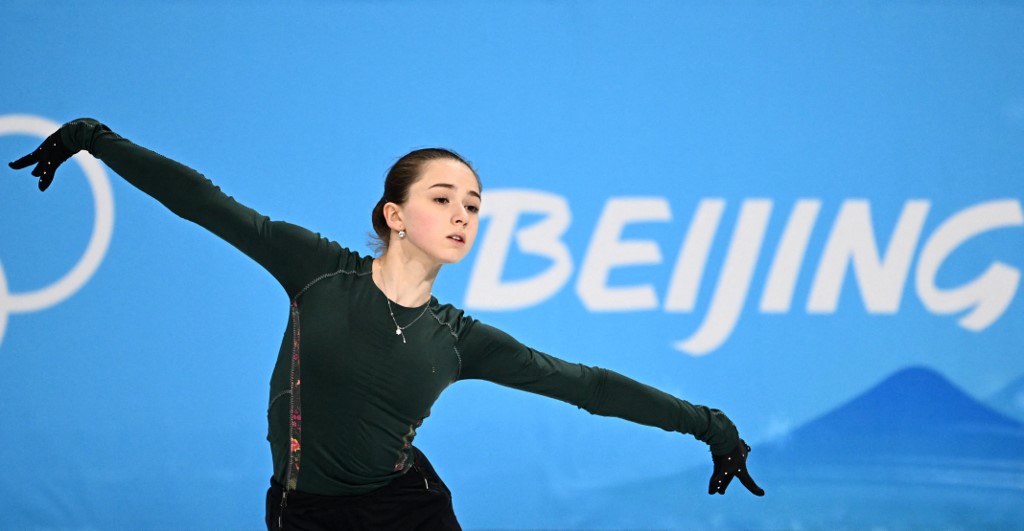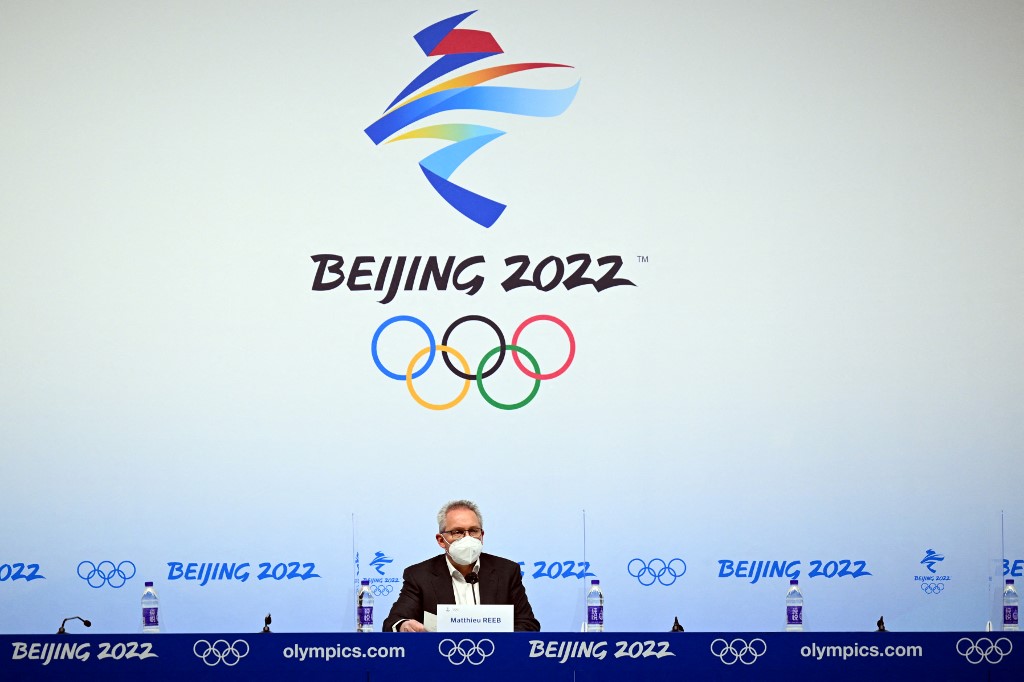
Russia’s Kamila Valieva attends a training session on February 13, 2022 prior the figure skating event at the Beijing 2022 Olympic Games. (Photo by Anne-Christine POUJOULAT / AFP)
BEIJING (Reuters) -Russian figure skater Kamila Valieva will be allowed to compete in the women’s single in figure skating at the Beijing Olympics after a decision by sport’s top court CAS on Monday.
The Court of Arbitration for Sport said it had upheld the Russian Anti-Doping Agency’s decision to lift a ban on the 15-year-old, who tested positive for a banned substance on Dec. 25, in a statement released on its website on Monday.
CAS cited the fact that Valieva is a “protected person” under World Anti-Doping Agency (WADA) rules as one of the exceptional circumstances underpinning its decision.
The figure skater is one of the youngest athletes to face a doping charge during the Olympics.
The result of the positive drug test was not revealed until Feb. 8 after Valieva had competed in the team event at the Winter Games, dazzling the world with the first quad jumps ever completed in the women’s Olympic competition.

Court of Arbitration for Sport Director General, Matthieu Reeb, holds a press conference to announce the Court’s ruling on 15-year-old Russian skater Kamila Valieva, after she tested positive for a banned substance in December, at the Main Media Centre on February 14, 2022 in Beijing during the Beijing 2022 Winter Olympic Games. (Photo by SEBASTIEN BOZON / AFP)
CAS emphasized the “serious issues of untimely notification of the results” in its decision.
“Such late notification was not her fault, in the middle of the Olympic Winter Games,” the ruling said.
The International Olympic Committee (IOC), WADA and the International Skating Union (ISU) had appealed RUSADA’s decision to lift the provisional doping suspension of Valieva.
The CAS ruling did not address the merits of Valieva’s drug case.
Earlier, IOC spokesman Mark Adams said the awarding of medals for the team event cannot go ahead until the doping case is addressed.
It is not clear whether other members of the ROC team can receive gold medals. Second-placed Team USA and Japan in third are also waiting in the wings. Canada finished fourth.
“That will probably not be sorted out during this Games and that is something regrettable, but we have to follow the process,” Adams said.
The women’s single, an event for which Valieva is hot favorite, starts with the short program on Tuesday and concludes on Thursday with the free skating.

